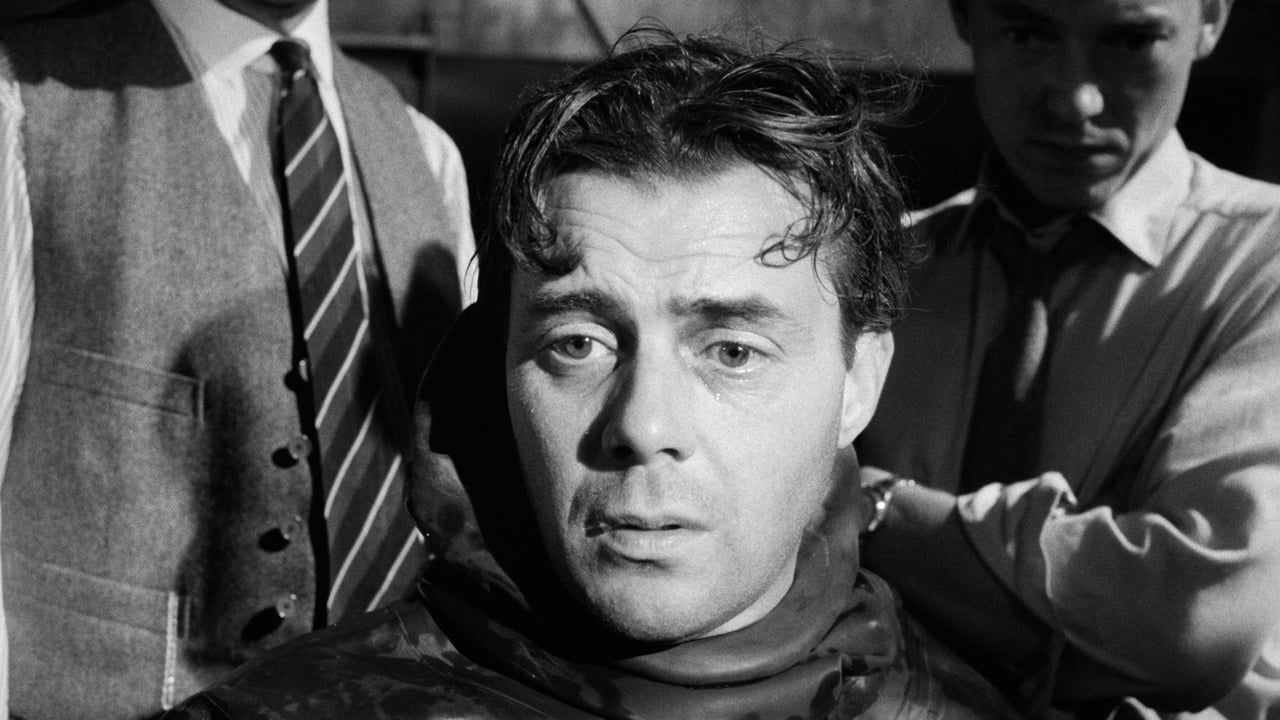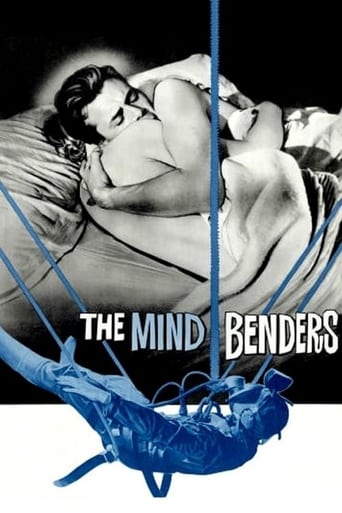

I do not usually say this, even of films with actors that I love, but I am very happy that I saw this film. I also do not usually review films on IMDb, this may be either my first or second review in well over a decade, but I feel that it is deserved. Although the first twenty minutes of this film are very, very slow, as soon as you see Dirk Bogarde, in person, the whole screen lights up. He probably looks better in this film than in any post-Victim performance. The cinematography for this film is amazing and dark and although not exactly a scary film, (there is no "monster" in the "Creature of the Black Lagoon" sense) it is nevertheless both terrifying and soul purging. The very best work is to be found in the film's final quarter hour or so with a remarkably realistic (for the 1960s) birthing scene in which you sort of get why Dirk's siblings claim he felt cheated in life for not being a heterosexual, you can see the paternal desire in his eyes in the way he handles the children and the birthing. The scenario is very intriguing, the idea that sensory isolation could cause the mind to be broken down and subjected to any indoctrination is fascinating. Although what the scientists and the Major do is utterly unethical, (Dirk's distant husband of the second half is heartbreaking), Oonagh knows she will eventually get her man back. After all, the brainwashing programmed him to be even more protective of his children, and she is like eight and a half months pregnant....
... View MoreHave you ever actually stopped and seriously tried to imagine what it would be like to experience complete sensory deprivation?Would you think that being in such a state as this you would make a perfect candidate for some major brainwashing?Well, (keeping this in mind) - Unfortunately, this 1963, British, Sci-Fi/Thriller certainly missed its golden opportunity to deliver a real humdinger of a story where sensory deprivation and brainwashing were, indeed, the very name of the game.Considering that "The Mind Benders" story held so much promise & potential, I found myself totally disappointed that, not only was this picture a very dry & bland bit of storytelling, but it actually took an unfortunate nosedive, deteriorating into nothing but a sappy, second-rate, soap opera in the end.Ho-hum!*Note* - A more up-dated, over-the-top, psychedelic version of The Mind Benders was made in 1980 called Altered States, directed by Ken Russell.
... View MoreDirk Bogarde can be described as a great actor who was never in a classic film. Popular films, like the Doctor series, certainly; good films like The Tale of Two Cities; excellent films like The Servant; fascinating, discussed films like Death in Venice and The Night Porter. But classic films like Casablanca - maybe Darling comes closest, and that's not even his movie."The Mind Benders" is another Bogarde film on the bizarre side. When an elderly scientist is suspected of treason, an investigator endeavors to find out whether his experiments in isolation made him do something - betray his government - that he ordinarily wouldn't have done. One of his coworkers (Bogarde) agrees to go into the isolation tank; when he emerges, he is told things about his wife that, if he believes them, will threaten his seemingly happy marriage.The film holds one's interest; with his science fiction bent, it has the distinctive '60s stamp on it.Mary Ure plays Bogarde's wife. The acting is good, with the usual fine performance from Bogarde, a man who, once he got away from Rank, was attracted to unusual roles and unusual films. This isn't as wild as it gets for Bogarde. It's not great, but it's not bad either.
... View MoreTHE MIND BENDERS is a very interesting film about sensory deprivation experiments that result in unexpected, tragic results. The story is told in a serious and somber manner. Dirk Bogarde is especially good as the reluctant researcher who volunteers to take a second dip in "the tank" to prove that sensory deprivation can be used to brainwash a person. The film seems to come to a climax when it is revealed to Bogarde that he was brainwashed while in "the tank", but then goes on for another 15 mins. in order to give the film a happy ending. This some what drags the film down, but does not detract from the overall impact of this film.A FEW NOTES: This film somewhat resembles THE ELECTRONIC MONSTER (aka.ESCAPEMENT) in many ways, although THE MIND BENDERS is superior in every way. The plot of using sensory deprivation to brainwash people (complete with subject submerged in a tank) was used in "The Cocoon" episode of HAWAII FIVE-O.
... View More